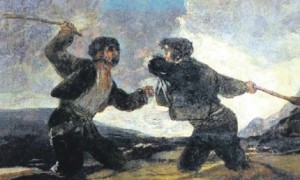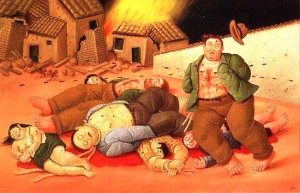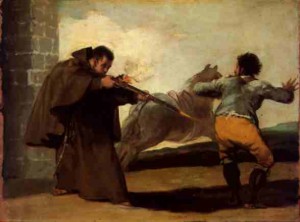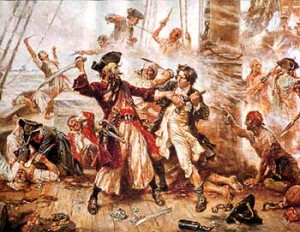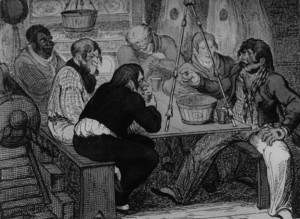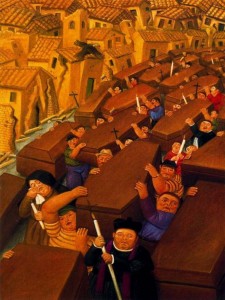 Grandin, Greg and Gilbert M. Joseph, Eds. 2010. A Century of Revolution: Insurgent and Counterinsurgent Violence During Latin America’s Long Cold War. Durham, NC: Duke University Press. [Selections]
Grandin, Greg and Gilbert M. Joseph, Eds. 2010. A Century of Revolution: Insurgent and Counterinsurgent Violence During Latin America’s Long Cold War. Durham, NC: Duke University Press. [Selections]
I wish I’d had more time to devote to A Century of Revolution edited by Greg Grandin and Gilbert Joseph. Unfortunately, I had to skip around, but I’ll certainly come back to this book for years. I’ll definitely give it the read it deserves soon. The title of the book itself is significant because the authors argue that periodization of the Cold War for Latin America should be broadened, repositioning its start at least with the first spark of the Mexican Revolution, if not before (1898), while ending with Central America’s conflicts of the 1980s. Latin America’s “Long Cold War” is defined not so much by the superpower contest between Russia and the United States (the Cold War proper) as it is by U.S. efforts at political containment. Beyond this, though deeply related, is the editors’ demand that political violence be historicized; otherwise, it ends up being cast as beyond explanation and analysis, ineffable or (worse) aestheticized. Continue reading

